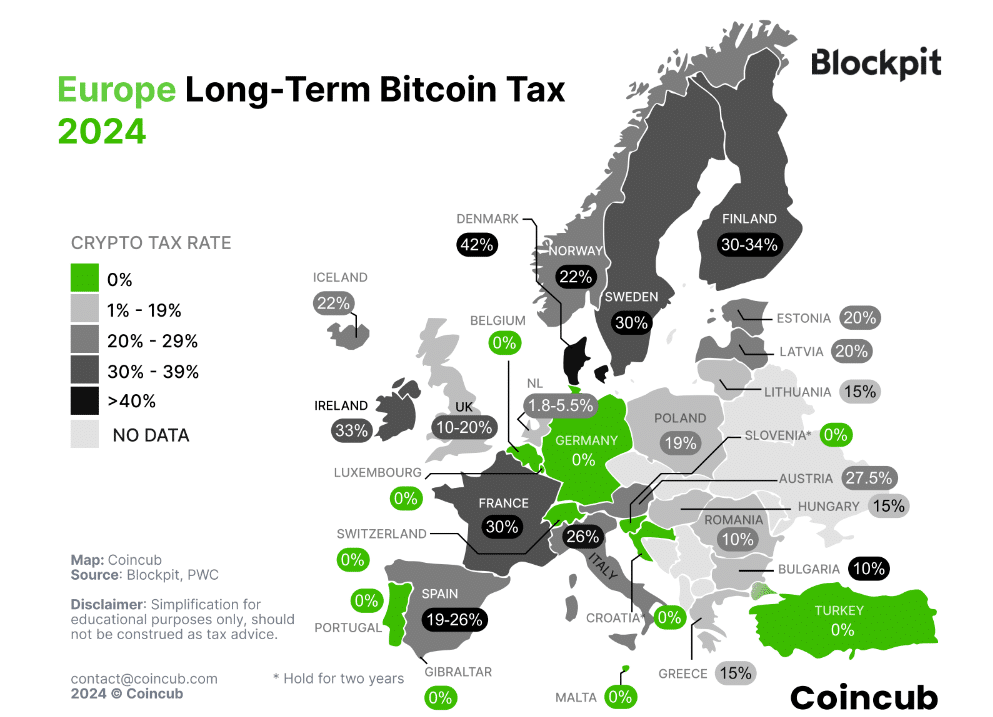Global Crypto Taxation Policies Shaping Investment Strategies: A Detailed Analysis
A recent study conducted by Coincub and Blockpit sheds light on how diverse tax regulations, ranging from zero taxes in the UAE to high rates in the U.S., influence crypto investment decisions.
The Varied Landscape of Crypto Taxation
The research report by Blockpit and Coincub underscores the significant differences in crypto taxation policies worldwide.
Notably, the UAE emerges as a lucrative destination for crypto investors due to its absence of personal income and capital gains taxes on cryptocurrency profits. Similarly, Switzerland stands out as a tax haven, offering zero taxes on personal income and capital gains derived from crypto investments.
Across Europe, the tax scenario presents a mixed picture. While some European countries offer favorable tax conditions for long-term crypto holdings, others maintain high tax rates. For instance, Denmark imposes one of the highest personal crypto tax rates globally, taxing up to 53% of both long-term and short-term capital gains from cryptocurrency transactions.

Impact of Taxation on Crypto Investments
On average, European countries levy relatively high taxes on crypto gains, although they offer tax breaks for long-term Bitcoin holdings. In contrast, the United States imposes the highest total and average tax rates of 17.5% (long-term) and 23.5% (short-term), potentially generating tax revenues of approximately $1.87 billion. However, the analysts caution that excessive taxation could deter investment, leading to underground crypto activities or prompting investors to seek more tax-friendly jurisdictions.
“Nations like Vietnam, Turkey, and Argentina may prioritize attracting crypto investment, promoting technological innovation, and offering alternatives to volatile local currencies over immediate tax collection.”
– Blockpit
Future Changes in Crypto Taxation
The report anticipates significant shifts in global crypto taxation policies by 2025, driven by initiatives like the Crypto-Asset Reporting Framework (CARF) and the Tax Administration for the Reporting of Crypto-Asset Activities (TARKA).
CARF, developed by the Organization for Economic Co-operation and Development, aims to enhance tax transparency and combat tax evasion by establishing a global framework for reporting crypto transactions. Concurrently, TARKA seeks to facilitate cooperation among tax authorities in the 48 participating countries, as outlined in the report.

